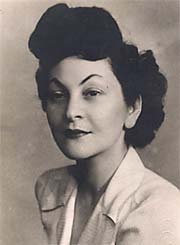Sufism or Taṣawwuf, variously defined as "Islamic mysticism", "the inward dimension of Islam" or "the phenomenon of mysticism within Islam", is mysticism in Islam, "characterized ... [by particular] values, ritual practices, doctrines and institutions" which began very early in Islamic history and represents "the main manifestation and the most important and central crystallization of" mystical practice in Islam. Practitioners of Sufism have been referred to as "Sufis".

Taqi al-Din Muhammad ibn Ma'ruf ash-Shami al-Asadi (1526–1585) was an Ottoman polymath active in Istanbul. He was the author of more than ninety books on a wide variety of subjects, including astronomy, clocks, engineering, mathematics, mechanics, optics and natural philosophy. In 1574 the Ottoman Sultan Murad III invited Taqī ad-Dīn to build the Constantinople observatory. Using his exceptional knowledge in the mechanical arts, Taqī ad-Dīn constructed instruments like huge armillary and mechanical clocks that he used in his observations of the Great Comet of 1577. He also used European celestial and terrestrial globes that were delivered to Istanbul in gift-exchange. The major work that resulted from his work in the observatory is titled The tree of ultimate knowledge [in the end of time or the world] in the Kingdom of the Revolving Spheres: The astronomical tables of the King of Kings [Murād III](Sidrat al-muntah al-afkar fi malkūt al-falak al-dawār– al-zij al-Shāhinshāhi). The work was prepared according to the results of the observations carried out in Egypt and Istanbul in order to correct and complete Ulugh Beg’s Zij as-Sultani. The first 40 pages of the work deal with calculations, followed by discussions of astronomical clocks, heavenly circles, and information about three eclipses which he observed at Cairo and Istanbul. For corroborating data of other observations of eclipses in other locales like Daud ar-Riyyadi, David Ben-Shushan of Salonika. According to Salomon Schweigger, the chaplain of Habsburg ambassador Johann Joachim von Sinzendorf, Taqi al-Din was a charlatan who deceived Sultan Murad III and had him spent enormous resources.

Qasīdat al-Burda, or al-Burda for short, is an ode of praise for the Islamic prophet Muhammad composed by the eminent Sufi mystic Imam al-Busiri of Egypt. The poem whose actual title is al-Kawākib ad-Durrīya fī Madḥ Khayr al-Barīya, is famous mainly in the Sunni Muslim world. It is entirely in praise of Muhammad, who is said to have been praised ceaselessly by the afflicted poet, to the point that the Prophet appeared in a dream and wrapped him in a mantle or cloak; in the morning the poet discovers that God has cured him.
Jamil Dehlavi is a London-based independent film director and producer of Pakistani-French origin.

Karachi School of Art (KSA) was founded back in 1964 by Rabia Zuberi, thus making it the first private academic center of art in the country and first center of art education of any kind in the city of Karachi. At the time when the concept of KSA was conceived, there was little know-how regarding art, creativity and innovation in the region. There was lack of awareness among the people about the various opportunities that the creative industry has to offer. Thus KSA is rendered as the pioneer at promoting art education and today takes pride in producing many eminent artists during its history.
The Blood of Hussain is a 1980 Pakistani film directed by Jamil Dehlavi and released in 1980. The film was banned throughout Pakistan as the military junta led by General Zia-ul-Haq toppled the government of Zulfiqar Ali Bhutto.
David Chalmers Alesworth, (A.R.B.S.) is a UK-based dual national artist, who divides his time between Bristol and Pakistan. Trained originally as a sculptor in the UK, he moved to Pakistan in 1987 and engaged with the popular visual culture of South Asia and with urban crafts such as truck decoration. He teaches art in Pakistan at various institutions including until recently the Beaconhouse National University, Lahore.,

Doria Shafik was an Egyptian feminist, poet and editor, and one of the principal leaders of the women's liberation movement in Egypt in the mid-1940s. As a direct result of her efforts, Egyptian women were granted the right to vote by the Egyptian constitution.






